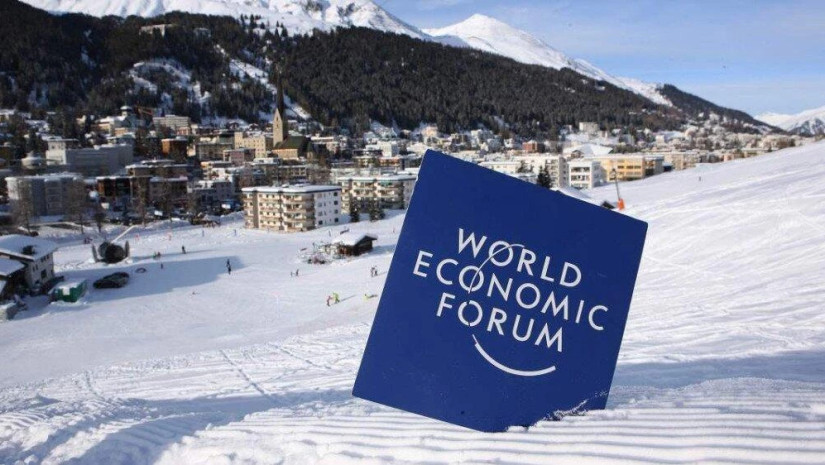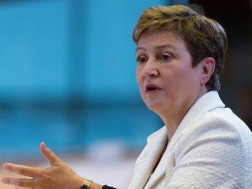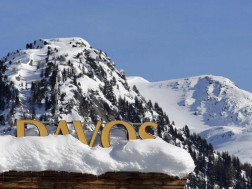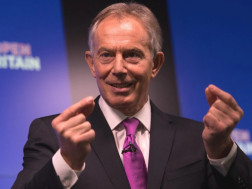The World Economic Forum’s annual conclave in the Swiss Alps is the greatest intersection of wealth and political power on the global calendar, but this year the balance is shifting.
Each January, forum organizers became used to announcing another record-setting list of national leaders, global officials and royalty making their way to the exclusive gathering.
WEF would attract even globalization’s strongest skeptics: from U.S. President Donald Trump to former Brazilian President Jair Bolsonaro and climate campaigner Greta Thunberg.
While there are 52 heads of state of government heading to Davos this year, top-tier leaders are missing. U.S. President Joe Biden and his Chinese and Russian counterparts Xi Jinping and Vladimir Putin are all giving it a miss.
French President Emmanuel Macron, who promised to Make the Planet Great Again, is also skipping the talkfest, along with new British Prime Minister Rishi Sunak and re-elected Brazilian President Luiz Inácio Lula da Silva.
Instead, it’s a European-heavy guest list: German Chancellor Olaf Scholz is the only leader from a G7 country, sharing top billing with European Commission President Ursula von der Leyen, another German.
Even within European royal ranks, the forum this year is attracting the likes of Queen Maxima of the Netherlands — a U.N. financial inclusion envoy — rather than environmental campaigners such as King Charles and Prince William.
Some of the most prominent tech companies are dialing back their participation amid rounds of heavy layoffs.
And the biggest party hosts in town — Russian oligarchs — remain forced out by sanctions levied since Putin’s invasion of Ukraine in February 2022.
Ukrainian President Volodymyr Zelenskyy has unrivaled star wattage among the Davos crowd — but even a video appearance from him this year will be treated as below par, given how many of them he now does.
It’s the C-Suite, stupid!
With the global political elite mostly absent, WEF is this year choosing to focus on rising CEO numbers.
Among 2,700 participants in official WEF sessions, “we’re likely to surpass the old record from 2020 with 600 global CEOs — including 1,500 C-suite level overall,” said WEF’s head of digital and marketing George Schmitt, who added that 80 of the CEOs are first-timers in Davos.
Those who claim Davos is dead are yet to be proven right, but WEF’s critics now spread beyond the activist world who have long disparaged the juxtaposition of private jet opulence with hand-wringing panels about global poverty.
The U.S. delegation includes cabinet members such as climate envoy John Kerry, who will camp out in Davos for most of the week, but others such as Treasury Secretary Janet Yellen are skipping.
It’s not that Yellen has better things to do at home: She’s embarking on an 11-day trip with stops in Senegal, Zambia and South Africa, with no time for Davos.
Nobel Peace Prize winner Beatrice Fihn, who campaigns to eliminate nuclear weapons, said she “genuinely had forgotten that Davos is still happening.”
“The format seems slightly dated now. The private jets and oligarch parties are no longer in step with modern biz [business] life,” said Scott Colvin, a Davos veteran who is now public affairs director at Aviva. “The events around COP [the U.N.’s annual climate summit] now feel a bigger deal, given their focus on a specific global policy objective,” he added.
WEF is a victim of its own success and stuck in a demographic bind.
The forum’s operating model requires it to provide a place for the world’s most powerful and influential people to talk.
In 2020 Bloomberg calculated 119 billionaires joined the party, with a combined net worth of more than $500 billion.
WEF’s efforts to bring the uber-elite together is a stark annual reminder that they don’t look like the rest of us.
The best ratio of female participants in WEF’s 52-year history of in-person gatherings was 24 percent, in 2020.
Despite years of exhortations and incentives for members to bring more female colleagues, the number often hovers in the range of 18 percent to 20 percent. A WEF spokesperson said that 42 percent of speakers this year will be women.
WEF aims for global reach — but often lands in the middle of the Atlantic instead.
This year Europe is supplying the most political leaders, while the U.S. corporate delegation will once again massively outweigh the others. The 700 Americans participating this year outnumber the Chinese delegation roughly 20 to 1, Politico reports.
















